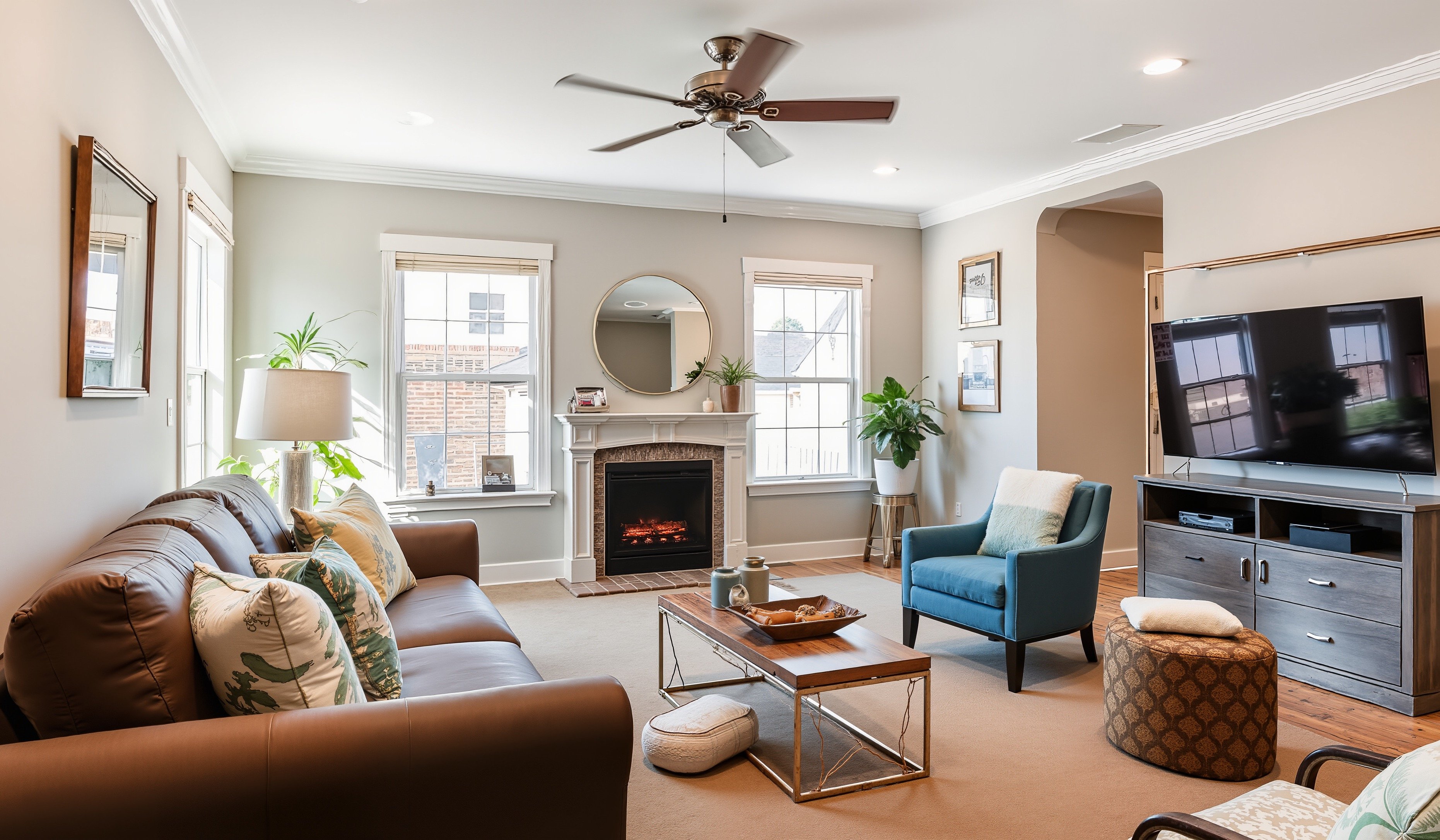
- ...
- Blog
- Is owning an Airbnb still profitable? A guide for hosts in 2025

Imagine owning an investment property where, instead of collecting traditional monthly rent, you earn from nightly stays. The appeal of real estate investing in the vacation rental industry lies in this potential for significant returns—but is it truly profitable? If you’re thinking about becoming a host, you’re likely wondering if the investment of time and money will ultimately pay off. While there are success stories of hosts achieving impressive rental income, there are also critical factors to consider when evaluating Airbnb profitability.
In this guide, we’ll dive into what it takes to make Airbnb hosting profitable, the operational expenses involved, and how much you can expect to earn. Whether you’re a property owner, real estate investor, or someone new to short-term rentals (STRs), this breakdown will help you make an informed decision about making an Airbnb investment.
|
Boost Airbnb profits and exceed guest expectations |
Understanding the Airbnb hosting business: What’s involved?
Running an Airbnb rental isn’t as simple as listing a property and waiting for renters. Airbnb hosting involves careful planning, property setup, guest management, and ongoing maintenance. Here are the primary steps involved:
1. Choosing a profitable property
Location is a driving factor in Airbnb profitability. Properties in prime tourist locations, vacation rental destinations, or major cities tend to attract higher daily rates and occupancy, while properties in rural or seasonal areas may face occupancy challenges. Here’s what to consider when selecting your Airbnb property:
- Research market demand: Assess local tourism, event frequency, and seasonality.
- Evaluate neighborhood vibe: Areas with restaurants, attractions, and accessible transportation appeal to travelers.
- Analyze competition: Look at similar Airbnb listings nearby, including their pricing, reviews, and amenities.
2. Setting up the property for guests
Airbnb guests expect more than a place to sleep; they look for a comfortable, well-designed, and functional space. This means outfitting your rental property with:
- Furnishings and amenities: High-quality linens, comfortable beds, functional kitchens, and thoughtful touches like coffee makers, toiletries, and high-speed Wi-Fi.
- Guest-friendly layouts: Ensure the space is intuitive and accessible, with clear instructions for items like thermostats and appliances.
- Professional photography: Listings with high-quality photos get more views and bookings, making professional photography a good investment.

3. Crafting a compelling listing
Your listing is often the first impression guests have of your property. It should showcase its best features and convey a sense of what makes it unique. A compelling listing includes:
- Detailed description: Highlight the benefits of staying at your property, including unique amenities, proximity to local attractions, and anything that would appeal to your target guests.
- Competitive pricing strategy: Pricing needs to reflect your area’s short-term rental market while balancing your costs and desired profit. Many hosts use dynamic pricing tools to adjust rates based on demand, seasonality, and competitor pricing.
4. Managing guests and daily operations
Hosting on Airbnb requires constant management and attention to detail. You’ll need to handle booking requests, guest inquiries, check-ins, and check-outs. Ensuring a great guest experience is essential to maintaining positive reviews and steady bookings, so expect to invest time in:
- Guest communication: Quick responses to questions and seamless check-in instructions make a positive impact on guest satisfaction.
- Property care and maintenance: Regular cleaning and maintenance are essential for keeping your property in excellent condition. Breezeway’s property care software helps hosts manage and streamline tasks like guest communication, housekeeping, and maintenance.
Is Airbnb still profitable? Key factors to consider
When determining the profitability of an Airbnb business, it’s essential to consider both income potential and operating expenses. Here’s a closer look at the main factors:
1. Potential earnings: Income from nightly stays
Airbnb’s income potential can be higher than that of traditional rentals due to the flexibility of nightly rates. However, actual earnings vary based on the following:
- Average nightly rate: This varies greatly based on the type of property, amenities, and location. In tourist hotspots, properties can command nightly rates of $150–$400, while rates may be lower in less-visited areas.
- Occupancy rate: Your property’s occupancy rate, or the percentage of nights booked, will also impact profitability. For instance, a well-managed Airbnb in a high-demand area might achieve a high occupancy rate of 80–90%, while seasonal rentals in quieter locations may only see 50%.
- High and low seasons: Demand is often seasonal, with peak seasons generating the highest revenue. Dynamic pricing during these times can help you maximize profits, while off-season strategies, like discounts or promotions, can boost occupancy during slower months.
Example Calculation: For a two-bedroom property in a popular tourist city with an average occupancy of 70% at $200/night, monthly gross revenue would be around $4,200 (21 nights x $200).
2. Operating expenses: The cost of running an Airbnb
Many new hosts underestimate the cost of managing an Airbnb. From regular cleaning to utilities and fees, here’s a breakdown of common expenses:
- Cleaning and maintenance: After every stay, properties need to be cleaned, with periodic deep cleaning. Professional cleaning fees vary by location but average $60–$200 per cleaning. Breezeway can help automate cleaning schedules, manage service providers, and track maintenance tasks.
- Utilities and supplies: Utilities like electricity, water, and Wi-Fi are essential and can add up. Additionally, providing guest supplies—like shampoo, coffee, or bottled water—enhances the guest experience but increases costs.
- Platform fees: Airbnb charges hosts around 3% of each booking. Depending on your earnings, these fees can significantly impact profit margins, so factor this into your pricing strategy.
- Insurance and taxes: Short-term rentals often require special insurance policies to cover liability and property damages. Some cities also levy a short-term rental tax, so research local requirements and adjust your budget accordingly.
3. External factors: Airbnb market conditions and competition
Profitability in Airbnb hosting can also be influenced by factors beyond your control, including:
- Local market conditions: Economic trends, tourism rates, and even city policies can influence your Airbnb’s success. In tourist-heavy areas, demand is generally more stable, while areas with fluctuating markets may face income variability.
- Local competition: High competition means you’ll need to stand out through unique amenities, excellent reviews, and competitive pricing. Analyze nearby listings to understand the local market and identify what makes your property unique.
Pros and cons of Airbnb hosting: Is it worth it?
Pros of Airbnb hosting
- High income potential: Short-term rentals can yield higher returns than long-term rentals, especially in popular locations where nightly rates are high.
- Flexibility and control: Airbnb allows you to rent your property when it suits you, giving you full control over pricing, availability, and guest criteria.
- Ability to create unique guest experiences: Airbnb hosts can provide memorable stays, which helps differentiate their property, build guest loyalty, and secure positive reviews.
Cons of Airbnb hosting
- Time-consuming management: Handling guest inquiries, cleaning, restocking, and troubleshooting issues can be time-intensive, especially for new hosts.
- Inconsistent income: Unlike long-term leases, Airbnb income is less predictable. Seasonality, guest cancellations, and market shifts can affect monthly earnings.
- Regulatory and tax hurdles: Some cities have restrictive short-term rental regulations. Familiarize yourself with local laws, as violations can lead to fines or bans.

How much can you make as an Airbnb host? Profit calculation
To help prospective hosts estimate potential profits, let’s walk through a sample calculation using realistic figures. Imagine a two-bedroom property in a desirable vacation rental spot with an occupancy rate of 70% and a nightly rate of $200:
- Gross Monthly Revenue: 21 nights occupied/month x $200 per night = $4,200
- Monthly Operating Costs:
- Cleaning: $100 per clean x 10 cleans = $1,000
- Utilities and Supplies: $200
- Airbnb Fees (3%): $126
- Estimated Monthly Profit: $4,200 - ($1,000 + $200 + $126) = $2,874
Maximizing profitability: Tips for successful Airbnb hosting
1. Streamline operations with automation
Using property care and management software like Breezeway can help you efficiently manage daily operations, from scheduling cleanings to handling guest communications. Automation tools reduce the time and stress associated with property management, allowing you to focus on guest experience and property growth.
2. Optimize your pricing strategy
Dynamic pricing tools allow hosts to adjust rates based on market conditions, demand, and competitor pricing. During high season, higher rates can increase income, while lower rates in the off-season can maintain occupancy and steady cash flow.
3. Invest in guest experience for positive reviews
Guests remember unique touches, such as a welcome basket or local recommendations. Quality experiences lead to positive reviews, which can boost your listing’s ranking, build trust with potential guests, and increase bookings.
Is Airbnb hosting a profitable investment?
Airbnb hosting can be a profitable business if approached strategically. Understanding market trends, accurately assessing costs, and prioritizing guest satisfaction are key to maximizing profitability. By leveraging tools like Breezeway to streamline operations and enhance the guest experience, hosts can unlock significant passive income potential and turn their properties into a successful short-term rental business.
Whether you’re a homeowner, new host, or a seasoned real estate investor, the key to success in the Airbnb business is diligent planning, adaptability, and a commitment to delivering exceptional guest experiences. With the right approach, Airbnb can indeed be a rewarding and profitable venture.
Delight guests and streamline your hosting operations
Streamline operations for short-term rentals and multifamily residential units with Breezeway's automated work coordination and guest experience tools to ensure guests and tenant satisfaction.
More from the Blog
Visit the blog


